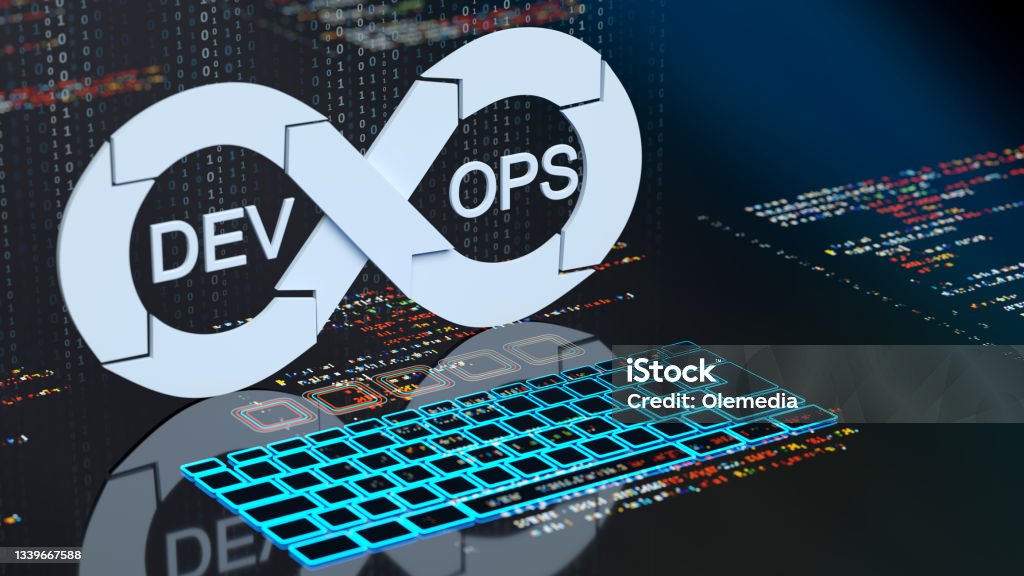In today’s fast-paced tech world, businesses need to be agile, efficient, and responsive. This is where DevOps comes into play. But what exactly is DevOps, and why is it so crucial? If you’re new to the concept, don’t worry. This beginner’s guide will help you navigate the basics of DevOps and understand its significance in modern software development.
What is DevOps?
DevOps is a cultural and technical movement that aims to improve collaboration between development (Dev) and operations (Ops) teams. Traditionally, these two teams worked in silos, which often led to delays, miscommunication, and inefficiencies. DevOps seeks to break down these barriers, fostering a collaborative environment that enhances productivity and accelerates software delivery.
At its core, DevOps focuses on automating and streamlining the processes of software development, deployment, and operations. By integrating these processes, DevOps aims to create a more cohesive workflow that can respond quickly to changing requirements and deliver high-quality software efficiently.
Key Principles of DevOps
- Collaboration and Communication: DevOps emphasizes the importance of communication and collaboration between development and operations teams. By working together, teams can share knowledge, address issues more effectively, and align their goals.
- Automation: Automation is a cornerstone of DevOps. It involves automating repetitive tasks such as code integration, testing, deployment, and monitoring. This not only reduces manual errors but also speeds up the release cycle.
- Continuous Integration and Continuous Deployment (CI/CD): CI/CD are practices that automate the integration of code changes and the deployment of applications. Continuous Integration (CI) involves regularly merging code changes into a shared repository, where automated tests are run. Continuous Deployment (CD) extends this by automatically deploying code changes to production environments after passing tests.
- Monitoring and Feedback: Continuous monitoring of applications and infrastructure is essential in DevOps. By monitoring performance and collecting feedback, teams can identify and address issues proactively, ensuring a better user experience and more reliable systems.
- Infrastructure as Code (IaC): IaC involves managing and provisioning infrastructure through code, rather than manual processes. This approach allows teams to automate infrastructure setup, manage configurations consistently, and scale environments efficiently.
- Culture of Continuous Improvement: DevOps encourages a culture where teams continuously seek to improve processes, tools, and practices. This mindset drives innovation and helps teams adapt to changing requirements and technologies.
Why DevOps Matters
- Faster Time to Market: By streamlining processes and automating tasks, DevOps helps organizations release software faster. This speed-to-market can provide a competitive edge and allow businesses to respond swiftly to market demands.
- Improved Quality: With practices like CI/CD and automated testing, DevOps helps catch bugs and issues early in the development cycle. This leads to higher quality software and fewer defects in production.
- Enhanced Collaboration: DevOps fosters a culture of collaboration between development and operations teams. This improved communication helps prevent misunderstandings and ensures that everyone is working towards common goals.
- Greater Efficiency: Automation and streamlined workflows reduce the time spent on manual tasks, allowing teams to focus on more strategic activities. This increased efficiency can lead to cost savings and better resource utilization.
- Increased Reliability: Continuous monitoring and feedback enable teams to address issues before they impact users. This proactive approach leads to more reliable and stable applications.
Getting Started with DevOps
- Educate Yourself: Start by learning about DevOps principles and practices. There are many online resources, courses, and books available that can provide a solid foundation.
- Learn the Tools: Familiarize yourself with popular DevOps tools such as Jenkins for CI/CD, Docker for containerization, Kubernetes for orchestration, and Terraform for IaC.
- Practice Automation: Begin automating simple tasks and gradually work your way up to more complex processes. This will help you understand the benefits of automation and its impact on efficiency.
- Foster Collaboration: Encourage open communication and collaboration within your team. Share knowledge, hold regular meetings, and work together to solve problems.
- Embrace Continuous Improvement: Adopt a mindset of continuous learning and improvement. Regularly review and refine your processes to keep up with evolving technologies and practices.
Conclusion
DevOps represents a shift in how software development and operations teams work together. By focusing on collaboration, automation, and continuous improvement, DevOps helps organizations deliver better software faster and more reliably. For beginners, understanding and implementing DevOps principles can lead to more efficient workflows, improved software quality, and a stronger team culture. Embrace the DevOps mindset, and you’ll be well on your way to thriving in today’s dynamic tech landscape.


